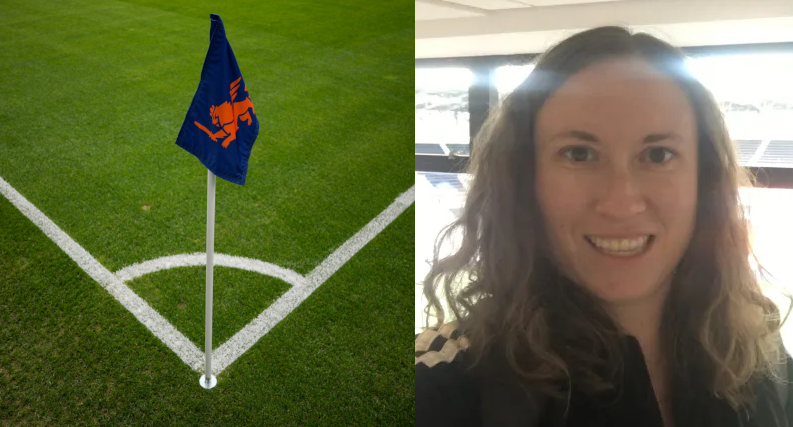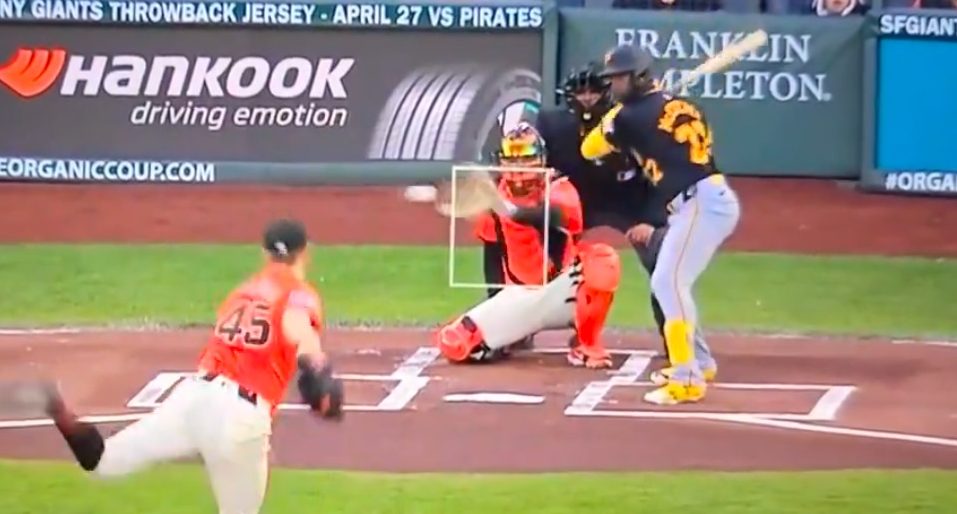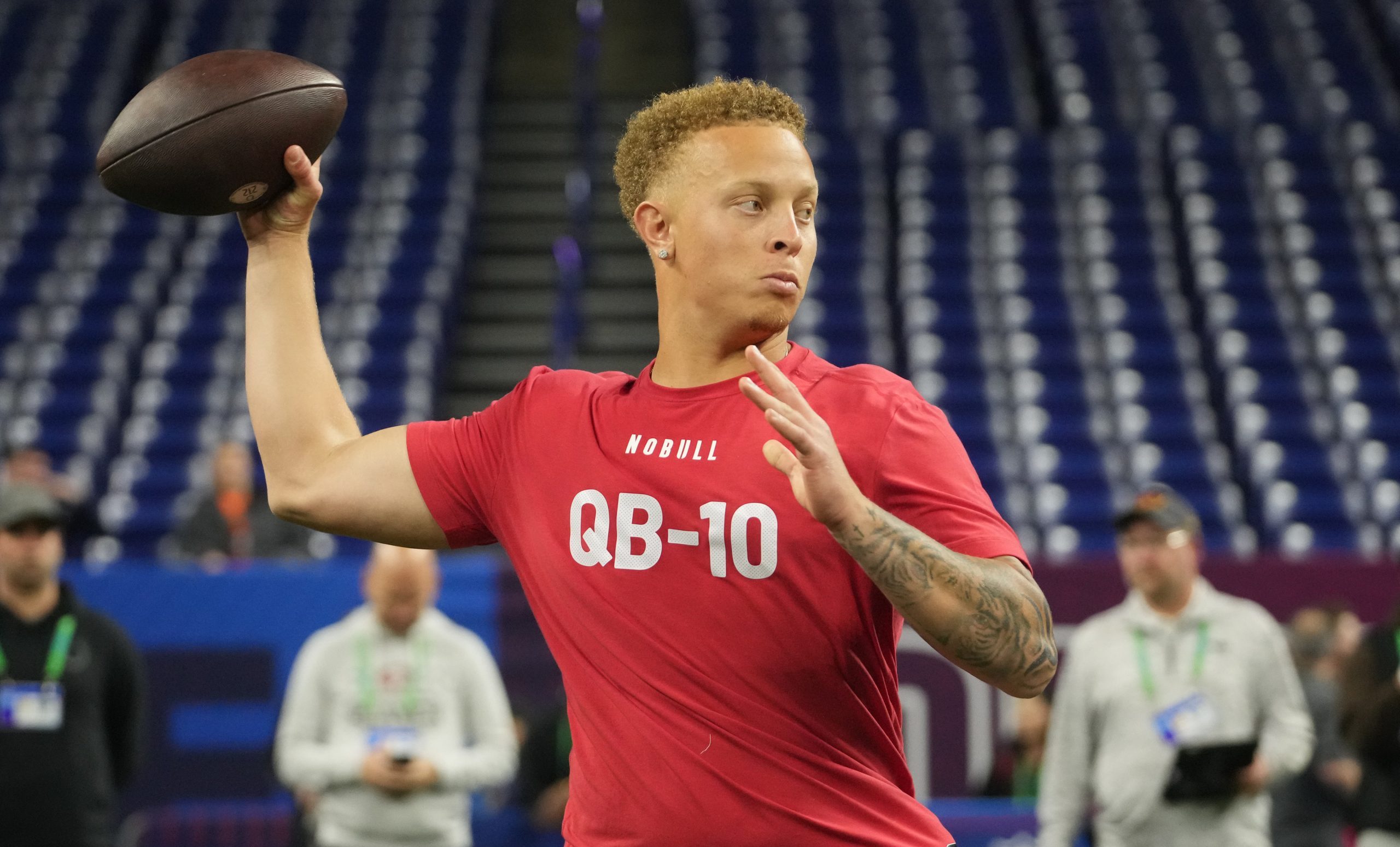The saga of MLS team FC Cincinnati revoking independent journalist Laurel Pfahler’s credentials for two weeks took a new twist Thursday. This initially came out Sunday, with Pfahler (who has covered the club since their USL beginnings in 2015, has worked for ESPN and The Athletic, and has been covering FC Cincinnati for independent subscription site Queen City Press since 2021) posting about the team’s ban of her:
#FCCincy has revoked my credential for two weeks. I stand by my reporting and will continue covering the team from afar during this time, but wanted to be transparent as to why you won't see quotes in my coverage today. https://t.co/5zRSYdTPu7
— Laurel Pfahler (@LaurelPfahler) March 10, 2024
That post from Pfahler on her Patreon site was quite restrained, all things considered. Of particular note, it saw Pfahler decline to get into details of what the dispute was over, but say the team had not accused her of breaching any MLS credential use conditions:
While I do not want to get into details of why my press credential has been revoked, I want you to know I vehemently disagree with the club on this decision. The club has not accused me of violating any guidelines listed in the MLS Notice of Credential Use Conditions. I stand by my reporting and ethics.
Many journalists in Cincinnati and beyond chimed in in defense of Pfahler this week, as did many of the team’s fans. But FC Cincinnati didn’t budge. And it instead escalated this much further with a statement posted on its website Thursday, which included a public accusation that Pfahler violated those credential use conditions (as well as the “standards and practices of the Society of Professional Journalists,” with that particular claim carrying a lot of questions, as we’ll get to shortly).
It also ended with a suggestion that they hope to move forward “in the spirit of All For Cincy,” which is not anything a club should be saying about a journalist, especially when accusing that journalist of ethical violations:
We had no intention of making this story public. However, since Laurel Pfahler has driven public attention to the matter, we have no choice but to provide answers to the many questions our fans are asking. Laurel has failed to act in accordance with the standards and practices of the Society of Professional Journalists and the MLS Notice of Credentials Use Conditions. She refuses to accept responsibility for her actions, despite multiple conversations and attempts at working together to forge a productive relationship between her and the club. Out of professional decorum, we will not be sharing the details publicly.
The decision to temporarily rescind her media credentials is meant to serve as an opportunity to reflect and rebuild based on trust, transparency and an adherence to a common set of standards and ethics associated with her role as a journalist. In the spirit of “All for Cincy,” we hope to move forward in a positive manner soon.
This led to Pfahler pushing back on Twitter/X, disputing the claims she had violated ethical guidelines and credential use policies, and saying the only specifics the club provided her when she asked for examples of their issues were about conducting interviews with sources outside the facility and team-approved interviews:
— Laurel Pfahler (@LaurelPfahler) March 14, 2024
First, if that is all FC Cincinnati had an issue with, that is incredibly weak from the team. Reporting on sports teams has always involved going beyond just team-approved interviews. It’s understandable why teams don’t always love that, but journalists aren’t forcing anyone to talk to them. Teams can encourage their players and other figures not to speak outside of club-approved interviews if they want, and they can also act in ways where players don’t feel like they need to do that.
And it’s particularly remarkable to see this seemingly at the center of a professional sports credential fight. This kind of “we control where and how you report” approach has shown up with some college football teams, including the USC Trojans last fall when they suspended Orange County Register reporter Luca Evans’ credentials for two weeks. Their specific issue was Evans “asking a question when a press conference had been concluded and talking to players and coaches in areas on campus that weren’t designated as media availabilities.”
In that case, after a few days of massive media backlash, even USC recanted and allowed Evans back. But that move from the Trojans was surprising even by the standards of college football attempts to control access and stories. Thus, it’s more surprising still to see it in the professional ranks, where the approach to the media has generally been more… professional.
Speaking of professional, let’s discuss FC Cincinnati’s specific claims that “Laurel has failed to act in accordance with the standards and practices of the Society of Professional Journalists and the MLS Notice of Credentials Use Conditions.” The first thing there is not actually a thing. SPJ does have a well-developed and useful Code of Ethics based on four principles, and “encourages their use in its practice by all people in all media.” But they spell out at the end of that page that said code is “not a set of rules” and “individual principles should not be taken out of context,” which is important to keep organizations from trying to weaponize particular parts of it against journalists, as seems to perhaps be the case here:
The SPJ Code of Ethics is a statement of abiding principles supported by additional explanations and position papers that address changing journalistic practices. It is not a set of rules, rather a guide that encourages all who engage in journalism to take responsibility for the information they provide, regardless of medium. The code should be read as a whole; individual principles should not be taken out of context. It is not, nor can it be under the First Amendment, legally enforceable.
Without FC Cincinnati making specific claims on its issues with Pfahler’s reporting, all we have to go on is what she cited as the examples it provided her of interviews conducted outside team facilities and team-authorized availabilities. And it is possible to cite portions of the SPJ Code of Ethics to criticize those approaches, such as “Avoid undercover or other surreptitious methods of gathering information unless traditional, open methods will not yield information vital to the public” and “Consider sources’ motives before promising anonymity. Reserve anonymity for sources who may face danger, retribution or other harm, and have information that cannot be obtained elsewhere. Explain why anonymity was granted.”
But sports journalists interviewing team sources, anonymously or not, outside of team-controlled environments, is a well-established practice, and not really what those principles are talking about. And that speaks to why that code is meant as a statement of principles and a guide meant to be seen as a whole, rather than a set of specific rules authority figures can use as a gotcha against journalists.
The other issue here is with the club’s claim that Pfahler has violated the MLS Notice of Credentials Use Conditions, which she had previously denied and continues to dispute. And the onus here should be on the team to point out specifically what they think she violated there. It made sense for Pfahler to not go into details beyond just the ban (and her dispute that she’d done anything wrong) initially in the hopes of resolving this relatively quietly, but FC Cincinnati escalated this substantially with a vague and non-specific statement on its website. And if it really thinks she did something wrong, it should say what that is so the world can judge, rather than providing a “trust us, she was wrong” statement.
At the moment, the trust here cannot be with FC Cincinnati. Around this ban, countless journalists have spoken up in defense of Pfahler’s history and record. And she’s now provided specific examples of what the team claimed she did wrong, which include nothing widely recognized as wrongdoing. Meanwhile, the team using its own channels to defend their actions with vague attacks on Pfahler is a notable escalation. And it’s provoked further response from journalists, including North American Soccer Reporters president Rachael Kriger, who said that organization (a very useful sport-specific cross-outlet media organization, something that’s proving increasingly necessary in this current age of team/league pushback) is advocating on Pfahler’s behalf to MLS:
Laurel, I am just as appalled by this as you and other members of the @SoccerReporters (NASR).
Folks, myself and the Board are working diligently and as fast as we can on this. We are holding meetings and communicating with MLS. We are not going to stop until this is resolved. https://t.co/ZTXHPUpTxK
— Rachael Kriger (@RachaelKriger) March 15, 2024
We’ll see what comes of this. But by everything that’s emerged so far, FC Cincinnati does not look particularly good. And its move to go after Pfahler publicly (oh, and end that with an “In the spirit of ‘All for Cincy,’ we hope to move forward in a positive manner soon,” which looks like the latest example of team figures thinking reporters should be cheerleaders) without specifying their criticisms made the team look worse.
[FC Cincinnati, Laurel Pfahler on Twitter/X]







